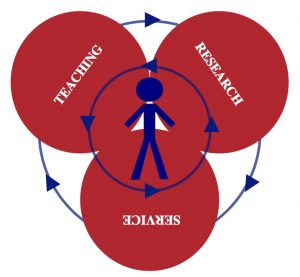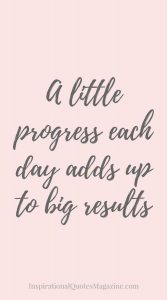13 July 2018 by Lisa Meloncon
 I’ve been thinking a lot about work lately. Not necessarily the work of work but the definitions of work—the nature of work–and how the definitions play out in higher education.
I’ve been thinking a lot about work lately. Not necessarily the work of work but the definitions of work—the nature of work–and how the definitions play out in higher education.
There are all sorts of think pieces and blog posts about the idea that being an academic is an interesting kind of a job because of the nature of the work we do. The (in)famous “life of the mind” or the idea that we create knowledge, which isn’t always easy to explain or to show tangible benefits. The latter of which is what most people talk about when they talk about their work.
Academics (like many busy people) talk a lot about to-do lists and schedules and planning. As the links in that previous sentence show, I’ve spent my fair share of time talking about these things as well. But I want to take a step back and ask us to consider what is our work? What do we value and prioritize when we put things on our lists and in our planners?
No matter how you think about the intrinsic rewards of this job, academia is a job. It is work that comes with regular duties for which we are paid. That’s the most basic definition of work there is.
 But what is the nature of our work? Unfortunately, much of the nature of it, much of what we constantly talk about, much of what we have been conditioned to value, centers only on the research aspects of our jobs. What about the nature of work found in the rest of our jobs, those other big categories of teaching and service? Why isn’t that more central to the nature of our work or more importantly, more central to how we talk about and view our own work?
But what is the nature of our work? Unfortunately, much of the nature of it, much of what we constantly talk about, much of what we have been conditioned to value, centers only on the research aspects of our jobs. What about the nature of work found in the rest of our jobs, those other big categories of teaching and service? Why isn’t that more central to the nature of our work or more importantly, more central to how we talk about and view our own work?
This is not a new phenomenon since we, unfortunately, train our graduate students and early career scholars to focus on research since that is more valued at many institutions at the time of tenure and promotion. I know there are institutions—usually regional state schools whose mission is more teaching—where one can get promoted on teaching and service, and it can happen much quicker than a promotion through research. We need more examples of these and more stories about the joy and satisfaction that can be found in doing the work.
But if we are ever to change the culture, to shift those institutional documents, then we need to focus on valuing and celebrating all aspects of the work we do.
It should come as no surprise that I spend a large portion of my time on what is traditionally considered service. The mentoring work I do (as do many others) actually bridges across all the traditional categories of teaching, research, and service, but this work is often eschewed because it doesn’t directly relate to research. However, I’ve had to make the case recently as to how it actually does impact research and teaching and that this work is much more than simply service. While a singular anecdote, it underscores an important point about valuing the nature of the work we do.
Here’s the big takeaway. Everything we do is work. It is. It’s all part of our job. There’s only a very, very select few in higher education that don’t have to worry about teaching, research and service in some specific percentage split. For the majority of us who are kind of regular faculty with some form of administrative appointment or not, our jobs are never just about research. It’s a shame that this the only thing we typically talk about. And it’s sadder still that the culture does not enable the majority of us to take pride in the many accomplishments we have outside of a research publication.
So when we spend our days or weeks doing administrative work or taking time to set up service learning projects and sites or mentoring students or learning new teaching techniques or spending all day in meetings that are necessary to move “things” forward, all of those things are work. All of them are valuable.
 Work, as it has an effect that helps, is a culmination of all the different parts of our job, and most importantly, all the different parts of the work in the order that YOU VALUE.
Work, as it has an effect that helps, is a culmination of all the different parts of our job, and most importantly, all the different parts of the work in the order that YOU VALUE.
Our work demands that we broaden and extend these conversations in other areas, and that we consistently work toward finding ways to value the work we do, no matter what that work looks like. On twitter there is a ubiquitous hashtag–#amwriting—to designate that you’re working, but it also designates only ONE kind of work. It also suggests that that work is more valuable than any other.
This is why I often use a series of hashtags: #amadministering, #amteaching, #amreading, #amadvising, #amcommitteework…..none of these have caught on like the one related to research because it seems the most common thing we ever want to talk about is research and writing of that research. We need to move toward changing this mindset because for so many of us, the bulk of the work week isn’t about research. Instead, it’s about all the other work that we are required to do, that we want to do.
As a community of scholars and teachers, we need to work toward these goals to shift the culture of higher education, particularly in our part of higher education where we have the potential to effect the most change.
I look forward to the day when I ask how you are, you not only don’t respond with how busy you are, but you also tell me about all of the good work you did not just what you’re researching.
Wishing you health, peace, and joy for the remainder of your summer.
